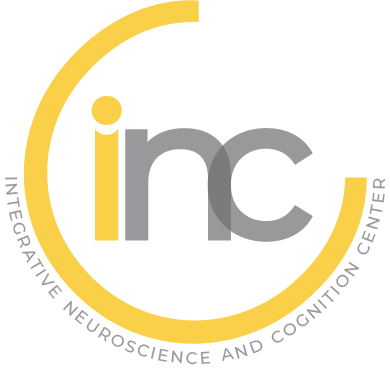Speaker
-
Gabriel LepousezPhD - Pierre-Marie Lledo Laboratory - Unité Perception et Mémoire - Institut Pasteur - Paris
How brain circuits sense and integrate peripheral immune signals, by Gabriel Lepousez
Summary
Upon infection, bacterial compounds, and the pro-inflammatory cytokines they elicit, induce a complex response coordinated by the brain and known as “sickness behavior”. This response induces stereotyped behavioral changes (reduced locomotion and food intake, social avoidance), metabolic adjustments (fever, glycemia), and autonomic/neuroendocrine responses in ways that increase resistance to infection but also regulate immune responses to prevent runaway responses. Such ability of the brain to regulate immune response provides an interesting framework to understand how dedicated neuronal circuits makes senses of internal immune stimuli and turns this perception into a concerted action. In this talk, I will present our recent progress to better understand the nature of the peripheral immune signals perceived by the brain and highlight a new brainstem-to-hypothalamus circuit capable of regulating systemic immune responses. Aside this homeostatic neuro-immune regulation, I will also show how pathological deregulated inflammation can have a long-lasting impact on specific brain circuits and can lead to the development of persistent anxious-depressive symptoms.
Short Biography
 Gabriel Lepousez is a neuroscientist whose research focuses on brain plasticity and circuit mechanisms underlying sensory perception and memory. He studied molecular biology at Ecole Normale Supérieure de Lyon, received his doctorate in Neuroscience from the Pierre & Marie Curie University in Paris, and hold a research position at Institut Pasteur in the Perception and Memory Unit, directed by Pierre-Marie Lledo.
Gabriel Lepousez is a neuroscientist whose research focuses on brain plasticity and circuit mechanisms underlying sensory perception and memory. He studied molecular biology at Ecole Normale Supérieure de Lyon, received his doctorate in Neuroscience from the Pierre & Marie Curie University in Paris, and hold a research position at Institut Pasteur in the Perception and Memory Unit, directed by Pierre-Marie Lledo.
Using modern system neuroscience approaches, he studied the function of adult neurogenesis in olfactory circuits dynamics and the role of top-down cortical circuits in olfactory perception. More recently, he has been interested in the dialogue between the brain, the peripheral immune system and the gut microbiota, and how brain-body interactions and internal sensory perception are involved in normal and pathological contexts. more informations
